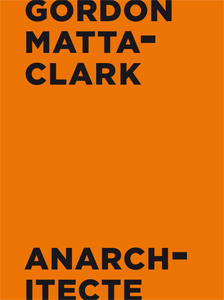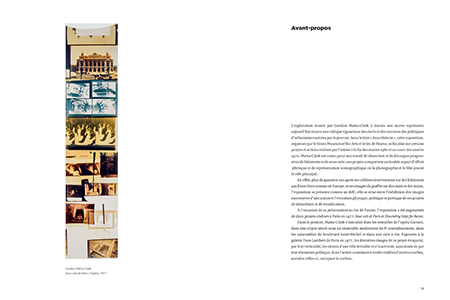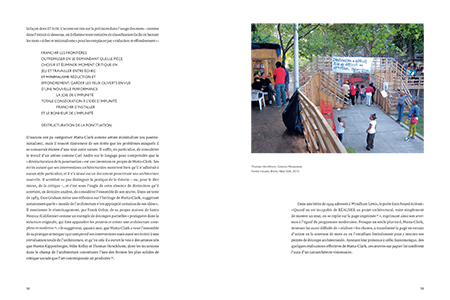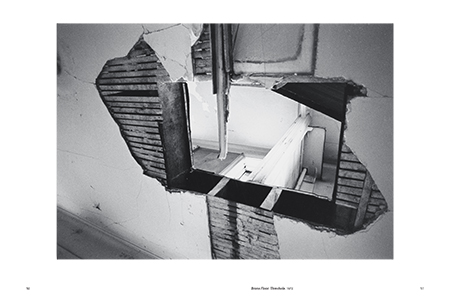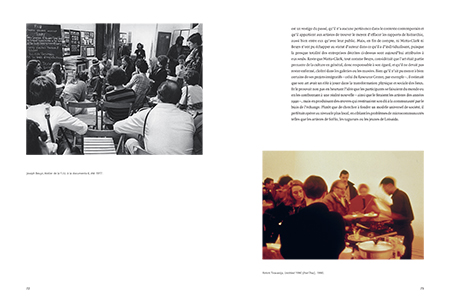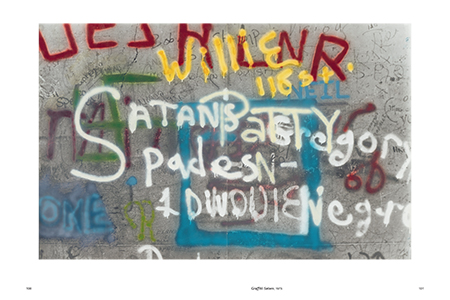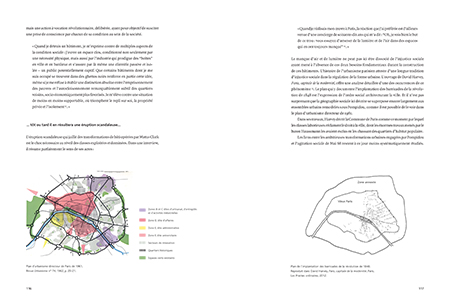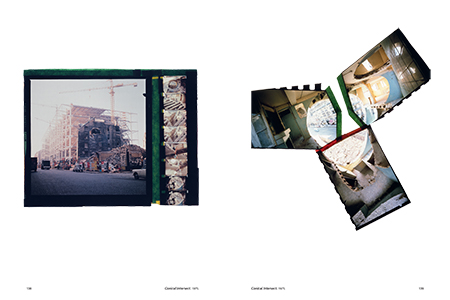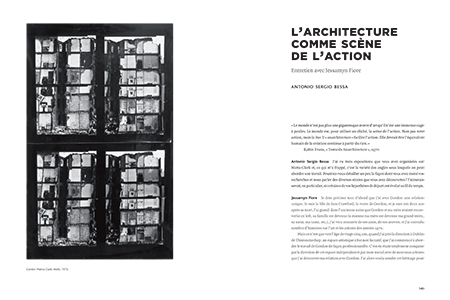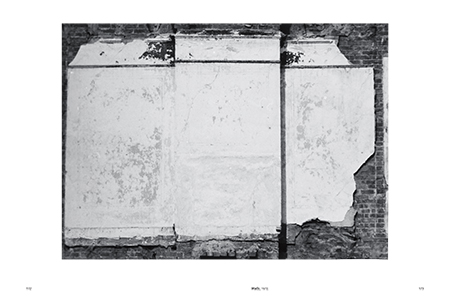The importance of Gordon Matta-Clark's work in a revaluation of
architecture after modernism.
This revealing book looks at the groundbreaking work of Gordon Matta-Clark (1943-1978), whose socially conscious practice blurred the boundaries between contemporary art and architecture. After completing a degree in architecture at Cornell University, Matta-Clark returned to his home city of New York. There he employed the term “anarchitecture,” combining “anarchy” and “architecture,” to describe the site-specific works he initially realized in the South Bronx.
The borough's many abandoned buildings, the result of economic decline and middle-class flight, served as Matta-Clark's raw material. His series Cuts dissected these structures, performing an anatomical study of the ravaged urban landscape. Moving from New York to Paris with Conical Intersect, a piece that became emblematic of artistic protest, Matta-Clark applied this same method to a pair of 17th-century row houses slated for demolition as a result of the Centre Pompidou's construction. This compelling volume grounds Matta-Clark's practice against the framework of architectural and urban history, stressing his pioneering activist-inspired approach, as well as his contribution to the nascent fields of social practice and
relational aesthetics.
Published on the occasion of the eponymous exhibition at the Jeu de Paume, Paris, from June 5 to September 23, 2018.
The socially conscious practice of Gordon Matta-Clark (1943–1978) blurred the boundaries between contemporary art and
architecture. After completing a degree in architecture at Cornell University, Matta-Clark returned to his home city of New York, where he initiated a series of site-specific works in derelict areas of the South Bronx. The borough's many abandoned buildings, the result of economic decline and middle-class flight, served as Matta-Clark's raw material. His series
Bronx Floors dissected these structures, performing an anatomical study of the ravaged urban landscape. Moving from New York to Paris with
Conical Intersect, a piece that became emblematic of artistic protest, Matta-Clark applied this same method to a pair of seventeenth-century row houses slated for demolition as a result of the Centre Pompidou's construction.
See also
Roula Matar: L'architecture selon Gordon Matta-Clark.
Edited by Antonio Sergio Bessa and Jessamyn Fiore.
Texts by Holly Block, Marta Gili, Antonio Sergio Bessa, Cara M. Jordan, Xavier Wrona, Georges Bataille, interview with Jessamyn Fior by Antonio Sergio Bessa.
published in June 2018
French edition
19,5 x 26 cm (hardcover)
192 pages (150 color & b/w ill.)
ISBN : 978-2-915704-77-8
EAN : 9782915704778
sold out



